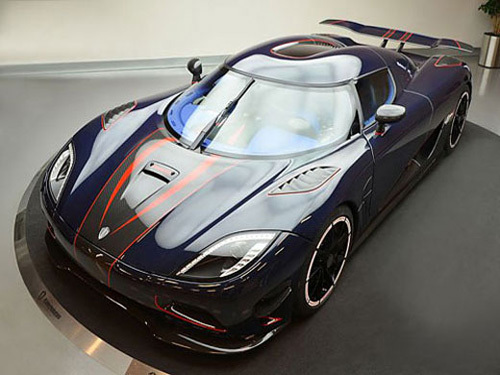According to foreign reports, the fast-growing era of the luxury car market in China has passed. According to an analysis agency, sales of luxury cars in China will increase by more than 80% over the past ten years by 2018. To this end, luxury car companies have adopted domestic and miniaturized strategies to cope with the decline in market heat. Kerosene Forced Air Heater,Kerosene Heater,Kerosene Forced Air Heaters,Kerosene Space Heaters Chant Heat Energy Science & Technology (Zhongshan) Co.,Ltd. , https://www.chantgasappliance.com
Reuters and other foreign media reported that the luxury car market cooling, this week's Guangzhou Auto Show, Daimler will bring the ultra-luxury Mercedes-Maybach sub-brand first car, although analysts warned that the outbreak of Chinese car sales The decade is nearing completion. For hot-selling luxury cars, there will also be a decline in sales growth. IHS Automotive predicts that by 2018, the annual sales growth of luxury cars in China will drop from 30% in the past decade to 5%. This means that the growth rate will slow down by about 83%.
Although the enthusiasm of overseas automakers to sell high-end luxury brands in China has continued, despite the slowest macroeconomic growth background since the first quarter of 2009, the demand for luxury car market is declining.
The ultra-luxury car with a price of more than RMB 2 million is particularly noticeable. This market segment has been in a slump in 2012. Sales of Lamborghini and Bentley in China have fallen for a time, so that Lamborghini started the SUV concept car at the Beijing Auto Show. Later, he decided to deny that China is an important market for new cars. Kearney even expects that sales of ultra-luxury vehicles in China will not increase in the next five years.
Similarly, Jaguar Land Rover, BMW and other ordinary luxury car brands have a slowing trend in sales in China, and even second-tier luxury brands with relatively higher growth rates are not to blame. According to statistics from Gasgoo.com, in October this year, Jaguar Land Rover’s sales in China increased by only 3% year-on-year, marking a new low in the past two years, which also led to a rare decline in the company’s global sales that month.
According to the statistics from the Gasgoo Institute, the top ten luxury brands sold in the Chinese market in the first three quarters of this year totaled 1.291 million, of which the Audi, BMW and Mercedes-Benz Ashkenazi three accounted for 955,000, accounting for 73.9%; the top ten of the same period last year The luxury brand sold a total of 1.035 million cars, and the Ashkenazi three 799,000 vehicles. In contrast, the sales volume of the top ten luxury cars increased by 24.7% year-on-year, which is a drop from the increase of more than 30% in previous years.
Some analysts pointed out that the macro economy is not booming, and some customers in the manufacturing and luxury sectors have even left. Some asthmatic dealers also said that as the economy turns cold, consumers also hope that car manufacturers will lower the guide price. A senior manager of the Hong Kong Registered Dealers Group stated: "Some consumers have the ability to take on luxury cars and have plans to buy them, but now they are turning into a wait-and-see attitude."
A multi-pronged approach Since the Chinese government implemented the diligence and thrifty economy two years ago, how to respond quickly to changes in consumer preferences is particularly critical for luxury car manufacturers. In addition to cutting costs and issuing discounts, luxury car manufacturers have responded to sluggish market demand by setting up or expanding production capacity in China, creating specialized versions for the Chinese market, releasing miniaturized products, and launching SUV models.
Last month, Jaguar Land Rover opened its first full-flow factory outside of the United Kingdom in Changshu (the Indian factory had only assembly functions). Jaguar Land Rover CEO Ralf Speth stated at the ceremony: “We hope to achieve sustainable growth and high growth. The road to quality growth, not just the scale game."
Localized operations in China help luxury car manufacturers respond more quickly to market trends while avoiding high tariffs and increasing cost competitiveness. GM’s Cadillac also went into production at the Jinqiao plant last year. Nissan’s Infiniti’s domestic new car is off the assembly line this month. Acura reiterated its 2016 domestic plan. Among mainstream luxury brands, only Lexus still insists that it will not be made domestically.
Luxury car companies have also created special models for the Chinese market, which is evident from the long wheelbase version of the car with the L suffix. In addition, of the three Mercedes-Maybach models developed by Daimler, the S 400 model is said to be precisely in order to adapt to China's tax system and to reduce pressure on buyers in terms of total cost. Infiniti is based on the Nissan Juke specially developed ESQ models for China. DS DS6, the first SUV product, currently has only a plan to sell in the Chinese market.
ESQ and DS6 also showed that luxury car brands are betting on SUVs in China. In recent months, Land Rover has discovered that luxury SUVs such as Shenxing are intensively released in China. The Guangzhou Auto Show, Porsche selected the starting model is also its best-selling product - a new generation of Cayenne SUV version.
Through the launch of miniaturized and entry-level models, it is also one of the solutions for luxury car companies to win more consumers by adopting a downward exploration approach. Similar to the BMW 1 Series prepared to derive a long wheelbase version for the Chinese market, Infiniti intends to introduce the Q30 and QX30 into China. The ultra-luxury car is not too much, and Andreas Graef, head of Kearney's Shanghai office, said: “Now there is a small Rolls Royce (Phantom) and Bentley (Europe/Flying), and there will probably be small Maserati."